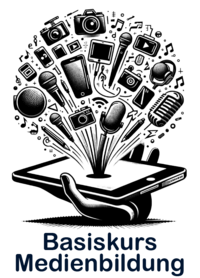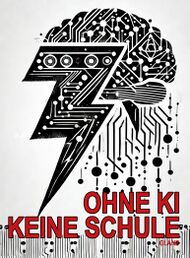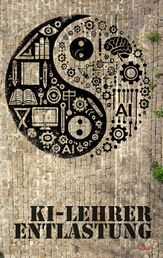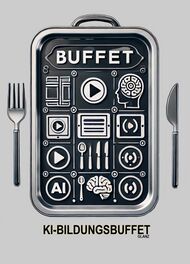Sentence Constituents: Unterschied zwischen den Versionen
Glanz (Diskussion | Beiträge) Keine Bearbeitungszusammenfassung |
Glanz (Diskussion | Beiträge) |
||
| (5 dazwischenliegende Versionen desselben Benutzers werden nicht angezeigt) | |||
| Zeile 23: | Zeile 23: | ||
= | = Sentence Constituents = | ||
In the English language, sentence constituents are the components that make up a complete sentence. These components are essential for understanding the structure and meaning of a sentence. Let's dive deep into the world of sentence constituents and explore their significance. | |||
== | == Introduction == | ||
Every sentence in the English language is made up of various components, each serving a unique purpose. These components, known as sentence constituents, are the building blocks of sentences. Understanding them is crucial for mastering the English language. [https://moocit.de MOOCit] | |||
=== Types of Sentence Constituents === | === Types of Sentence Constituents === | ||
There are several types of sentence constituents, including: | There are several types of sentence constituents, including: | ||
{{o}} [[Subject|Subject]]: The | {{o}} [[Subject|Subject]]: The main noun or pronoun in a sentence that tells who or what the sentence is about. | ||
{{o}} [[Predicate|Predicate]]: | {{o}} [[Predicate|Predicate]]: The part of the sentence that tells what the subject is doing or describes a state of being. | ||
{{o}} [[Object|Object]]: The | {{o}} [[Object|Object]]: The noun or pronoun that receives the action of the verb. | ||
{{o}} [[Adverbial|Adverbial]]: Provides additional information about the | {{o}} [[Adverbial|Adverbial]]: Provides additional information about the verb, such as when, where, or how an action occurred. | ||
{{o}} [[ | {{o}} [[Attribute|Attribute]]: Describes or modifies a noun. | ||
== Importance of Sentence Constituents == | == Importance of Sentence Constituents == | ||
Understanding sentence constituents is | Understanding sentence constituents is essential for several reasons: | ||
{{o}} It helps in | {{o}} It helps in constructing grammatically correct sentences. | ||
{{o}} It aids in | {{o}} It aids in comprehending complex sentences. | ||
{{o}} It's | {{o}} It's crucial for learning advanced grammar concepts. | ||
= Open Tasks (Selection) = | |||
=== Easy === | |||
= | {{o}} [[Identifying Subjects and Predicates]]: Identify the subject and predicate in ten sentences from your favorite book. | ||
{{o}} [[Creating Sentences]]: Create five sentences using the sentence constituents you've learned. | |||
=== | {{o}} [[Descriptive Attributes]]: Write a paragraph describing your favorite place, focusing on using attributes. | ||
{{o}} [[ | |||
{{o}} [[ | |||
{{o}} [[ | |||
=== Standard === | === Standard === | ||
{{o}} [[ | {{o}} [[Comparing Languages]]: Research how sentence constituents differ in another language and write a short report. | ||
{{o}} [[ | {{o}} [[Story Creation]]: Write a short story ensuring each sentence has a clear subject, predicate, and object. | ||
{{o}} [[ | {{o}} [[Sentence Transformation]]: Take a complex sentence and break it down into its individual constituents. | ||
=== | === Difficult === | ||
{{o}} [[ | {{o}} [[Advanced Grammar]]: Dive into advanced grammar topics related to sentence constituents and summarize your findings. | ||
{{o}} [[ | {{o}} [[Teaching Sentence Constituents]]: Prepare a lesson plan to teach younger students about sentence constituents. | ||
{{o}} [[ | {{o}} [[Language Evolution]]: Research how sentence constituents have evolved in the English language over the centuries. | ||
{{:Offene Aufgabe - MOOC erstellen}} | {{:Offene Aufgabe - MOOC erstellen}} | ||
= | = Oral Examination = | ||
{{o}} [[Sentence | {{o}} [[Sentence Structure]]: Explain the importance of sentence constituents in understanding sentence structure. | ||
{{o}} [[ | {{o}} [[Comparative Analysis]]: Compare and contrast the sentence constituents of English with another language of your choice. | ||
{{o}} [[ | {{o}} [[Real-life Application]]: Discuss a real-life scenario where understanding sentence constituents was crucial for effective communication. | ||
{{o}} [[ | {{o}} [[Grammar Evolution]]: How have sentence constituents evolved over time in the English language? | ||
{{o}} [[ | {{o}} [[Teaching Methods]]: Describe a teaching method that can be effective in teaching sentence constituents to beginners. | ||
= | <br> | ||
<br> | |||
== | = Interactive Tasks = | ||
== Crossword == | |||
<div class="kreuzwort-quiz"> | <div class="kreuzwort-quiz"> | ||
| Zeile 80: | Zeile 78: | ||
| Subject || Who or what the sentence is about? | | Subject || Who or what the sentence is about? | ||
|- | |- | ||
| Predicate || What action is the subject | | Predicate || What action is the subject performing or what state of being is it in? | ||
|- | |- | ||
| Object || | | Object || Which noun or pronoun receives the action of the verb? | ||
|- | |- | ||
| Adverbial || Which | | Adverbial || Which part of the sentence provides additional information about the verb? | ||
|- | |- | ||
| | | Attribute || Which part of the sentence describes or modifies a noun? | ||
|} | |} | ||
{{:Kreuzwort Ende}} | {{:Kreuzwort Ende}} | ||
<br> | <br> | ||
== Quiz: | |||
== Quiz: Test Your Knowledge == | |||
{{:Multiple-Choice Anfang}} | {{:Multiple-Choice Anfang}} | ||
'''Which constituent | '''Which sentence constituent provides additional information about the verb, such as when, where, or how an action occurred?''' | ||
(Subject) | (Adverbial) | ||
(!Subject) | |||
(!Object) | |||
(!Attribute) | |||
'''Which sentence constituent describes or modifies a noun?''' | |||
(Attribute) | |||
(!Predicate) | |||
(!Subject) | |||
(!Object) | |||
'''In the sentence "The cat chased the mouse", what is "the mouse"?''' | |||
(Object) | |||
(!Subject) | |||
(!Predicate) | |||
(!Adverbial) | |||
'''Which of the following is NOT a sentence constituent?''' | |||
(Interjection) | |||
(!Subject) | |||
(!Predicate) | |||
(!Object) | |||
'''In the sentence "She sings beautifully", what is "beautifully"?''' | |||
(Adverbial) | |||
(!Subject) | |||
(!Predicate) | (!Predicate) | ||
(!Object) | |||
{{:Multiple-Choice Ende}} | |||
<br> | |||
{{:Multiple-Choice Anfang}} | |||
'''Which sentence constituent tells what the subject is doing or describes a state of being?''' | |||
(Predicate) | |||
(!Subject) | |||
(!Object) | (!Object) | ||
(!Adverbial) | (!Adverbial) | ||
''' | '''In the sentence "The children played in the park", what is "in the park"?''' | ||
(Adverbial) | (Adverbial) | ||
(!Subject) | (!Subject) | ||
| Zeile 105: | Zeile 141: | ||
(!Object) | (!Object) | ||
''' | '''Which sentence constituent is the main noun or pronoun in a sentence that tells who or what the sentence is about?''' | ||
( | (Subject) | ||
(! | (!Predicate) | ||
(! | (!Object) | ||
(! | (!Adverbial) | ||
'''In the sentence "She gave him a gift", what is "a gift"?''' | |||
(Object) | |||
(!Subject) | |||
(!Predicate) | |||
(!Adverbial) | |||
'''Which of the following is typically the receiver of the action in a sentence?''' | |||
(Object) | |||
(!Subject) | |||
(!Predicate) | |||
(!Adverbial) | |||
{{:Multiple-Choice Ende}} | {{:Multiple-Choice Ende}} | ||
| Zeile 119: | Zeile 167: | ||
{| | {| | ||
|- | |- | ||
| Subject || | | Subject || Main noun or pronoun | ||
|- | |- | ||
| Predicate || Action or state of | | Predicate || Action or state of being | ||
|- | |- | ||
| Object || Receives the action | | Object || Receives the action | ||
|- | |- | ||
| Adverbial || | | Adverbial || Information about the verb | ||
|- | |- | ||
| | | Attribute || Describes a noun | ||
|} | |} | ||
{{:Memo Ende}} | {{:Memo Ende}} | ||
| Zeile 134: | Zeile 182: | ||
<iframe> https://learningapps.org/index.php?s=Sentence+Constituents </iframe> | <iframe> https://learningapps.org/index.php?s=Sentence+Constituents </iframe> | ||
== | == Fill in the Blanks == | ||
<quiz display=simple> | <quiz display=simple> | ||
{''' | {'''Complete the text.''' | ||
|type="{}"} | |type="{}"} | ||
Every sentence in the English language is made up of various { components }, each serving a unique { purpose }. These components, known as sentence { constituents }, are the building blocks of { sentences }. | |||
</quiz> | </quiz> | ||
= OERs | = OERs on the Topic = | ||
<iframe> https://en.m.wikipedia.org/wiki/Sentence_(linguistics)</iframe> | |||
= Links = | = Links = | ||
{| align=center | {| align=center | ||
{{:D-Tab}} | {{:D-Tab}} | ||
'''[[Sentence Constituents]]''' | '''[[Sentence Constituents]]''' | ||
{{o}} [[ | {{o}} [[Subject|Subject]] | ||
{{o}} [[ | {{o}} [[Predicate|Predicate]] | ||
{{o}} [[ | {{o}} [[Object|Object]] | ||
{{o}} [[ | {{o}} [[Adverbial|Adverbial]] | ||
{{o}} [[ | {{o}} [[Attribute|Attribute]] | ||
|} | |} | ||
= | = Share - Discussion - Rate = | ||
{{:Teilen - MOOCit}} | {{:Teilen - MOOCit}} | ||
[[Category:AI_MOOC]] | |||
[[Category:English]] | |||
[[Category:Grammar]] | |||
[[Kategorie:AI_MOOC]] | [[Kategorie:AI_MOOC]] | ||
[[Kategorie:English Grammar]] | [[Kategorie:English Grammar]] | ||
[[Kategorie:Language Learning]] | [[Kategorie:Language Learning]] | ||
Aktuelle Version vom 13. August 2025, 01:49 Uhr


Sentence Constituents


Sentence Constituents
In the English language, sentence constituents are the components that make up a complete sentence. These components are essential for understanding the structure and meaning of a sentence. Let's dive deep into the world of sentence constituents and explore their significance.
Introduction
Every sentence in the English language is made up of various components, each serving a unique purpose. These components, known as sentence constituents, are the building blocks of sentences. Understanding them is crucial for mastering the English language. MOOCit
Types of Sentence Constituents
There are several types of sentence constituents, including:
- Subject: The main noun or pronoun in a sentence that tells who or what the sentence is about.
- Predicate: The part of the sentence that tells what the subject is doing or describes a state of being.
- Object: The noun or pronoun that receives the action of the verb.
- Adverbial: Provides additional information about the verb, such as when, where, or how an action occurred.
- Attribute: Describes or modifies a noun.
Importance of Sentence Constituents
Understanding sentence constituents is essential for several reasons:
- It helps in constructing grammatically correct sentences.
- It aids in comprehending complex sentences.
- It's crucial for learning advanced grammar concepts.
Open Tasks (Selection)
Easy
- Identifying Subjects and Predicates: Identify the subject and predicate in ten sentences from your favorite book.
- Creating Sentences: Create five sentences using the sentence constituents you've learned.
- Descriptive Attributes: Write a paragraph describing your favorite place, focusing on using attributes.
Standard
- Comparing Languages: Research how sentence constituents differ in another language and write a short report.
- Story Creation: Write a short story ensuring each sentence has a clear subject, predicate, and object.
- Sentence Transformation: Take a complex sentence and break it down into its individual constituents.
Difficult
- Advanced Grammar: Dive into advanced grammar topics related to sentence constituents and summarize your findings.
- Teaching Sentence Constituents: Prepare a lesson plan to teach younger students about sentence constituents.
- Language Evolution: Research how sentence constituents have evolved in the English language over the centuries.


Oral Examination
- Sentence Structure: Explain the importance of sentence constituents in understanding sentence structure.
- Comparative Analysis: Compare and contrast the sentence constituents of English with another language of your choice.
- Real-life Application: Discuss a real-life scenario where understanding sentence constituents was crucial for effective communication.
- Grammar Evolution: How have sentence constituents evolved over time in the English language?
- Teaching Methods: Describe a teaching method that can be effective in teaching sentence constituents to beginners.
Interactive Tasks
Crossword
| Subject | Who or what the sentence is about? |
| Predicate | What action is the subject performing or what state of being is it in? |
| Object | Which noun or pronoun receives the action of the verb? |
| Adverbial | Which part of the sentence provides additional information about the verb? |
| Attribute | Which part of the sentence describes or modifies a noun? |
Quiz: Test Your Knowledge
Which sentence constituent provides additional information about the verb, such as when, where, or how an action occurred? (Adverbial) (!Subject) (!Object) (!Attribute)
Which sentence constituent describes or modifies a noun? (Attribute) (!Predicate) (!Subject) (!Object)
In the sentence "The cat chased the mouse", what is "the mouse"? (Object) (!Subject) (!Predicate) (!Adverbial)
Which of the following is NOT a sentence constituent? (Interjection) (!Subject) (!Predicate) (!Object)
In the sentence "She sings beautifully", what is "beautifully"? (Adverbial) (!Subject) (!Predicate) (!Object)
Which sentence constituent tells what the subject is doing or describes a state of being? (Predicate) (!Subject) (!Object) (!Adverbial)
In the sentence "The children played in the park", what is "in the park"? (Adverbial) (!Subject) (!Predicate) (!Object)
Which sentence constituent is the main noun or pronoun in a sentence that tells who or what the sentence is about? (Subject) (!Predicate) (!Object) (!Adverbial)
In the sentence "She gave him a gift", what is "a gift"? (Object) (!Subject) (!Predicate) (!Adverbial)
Which of the following is typically the receiver of the action in a sentence? (Object) (!Subject) (!Predicate) (!Adverbial)
Memory
| Subject | Main noun or pronoun |
| Predicate | Action or state of being |
| Object | Receives the action |
| Adverbial | Information about the verb |
| Attribute | Describes a noun |
LearningApps
Fill in the Blanks
OERs on the Topic
Links
Share - Discussion - Rate
Schulfach+


aiMOOCs



aiMOOC Projekte


YouTube Music: THE MONKEY DANCE

Spotify: THE MONKEY DANCE

Apple Music: THE MONKEY DANCE

Amazon Music: THE MONKEY DANCE

The Monkey Dance SpreadShirtShop

|
|
|


Children for a better world >> Förderung der AI Fair-Image Challenge
Fair-Image wird von CHILDREN JUGEND HILFT! gefördert und ist mit der deutschlandweiten AI Fair-Image Challenge SIEGERPROJEKT 2025. Alle Infos zur Challenge hier >>. Infos zum Camp25 gibt es hier. Wenn auch Ihr Euch ehrenamtlich engagiert und noch finanzielle Unterstützung für Eurer Projekt braucht, dann stellt gerne einen Antrag bei JUGEND HILFT.











































